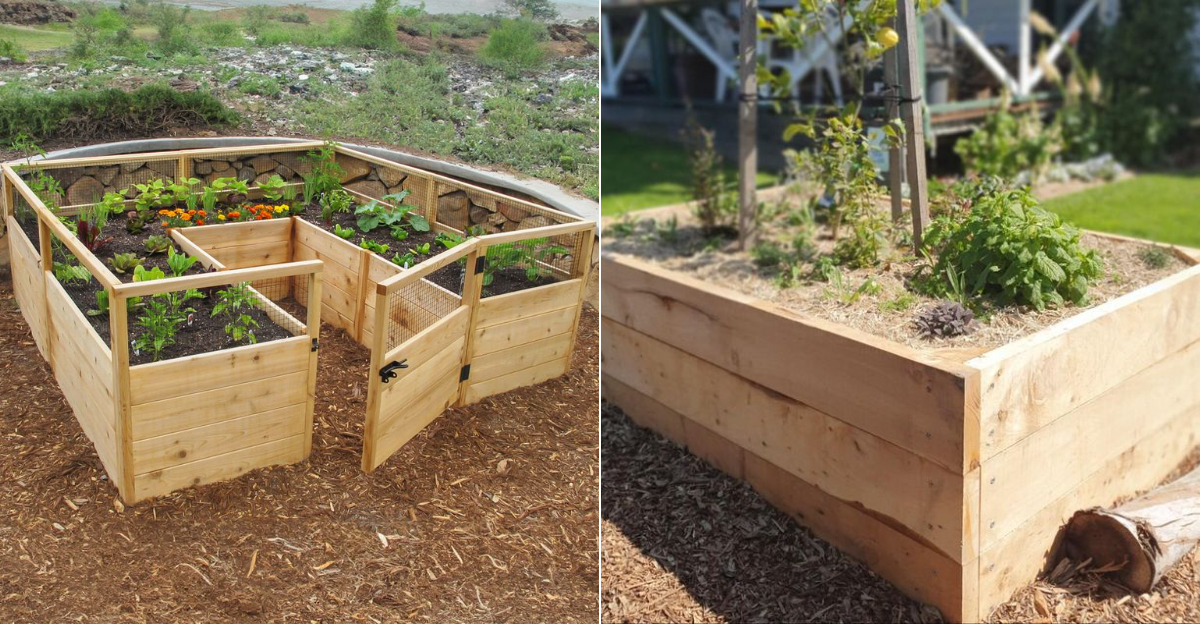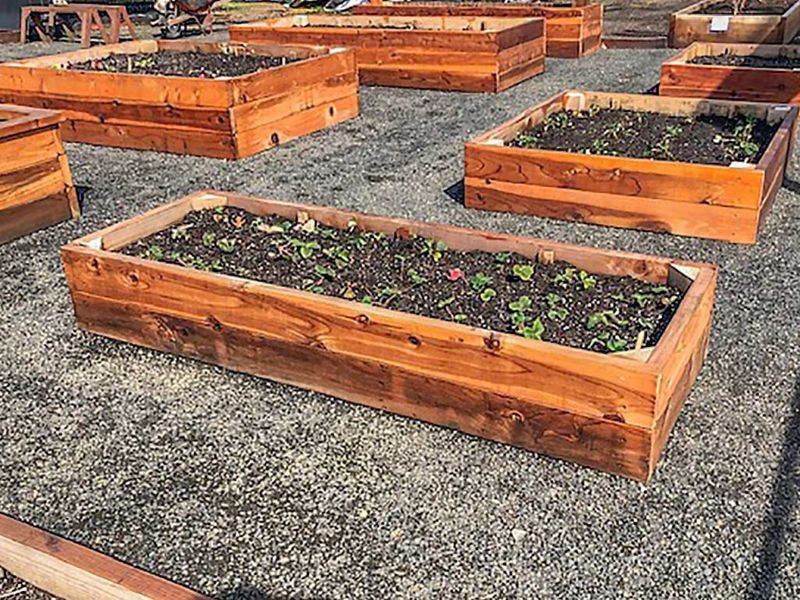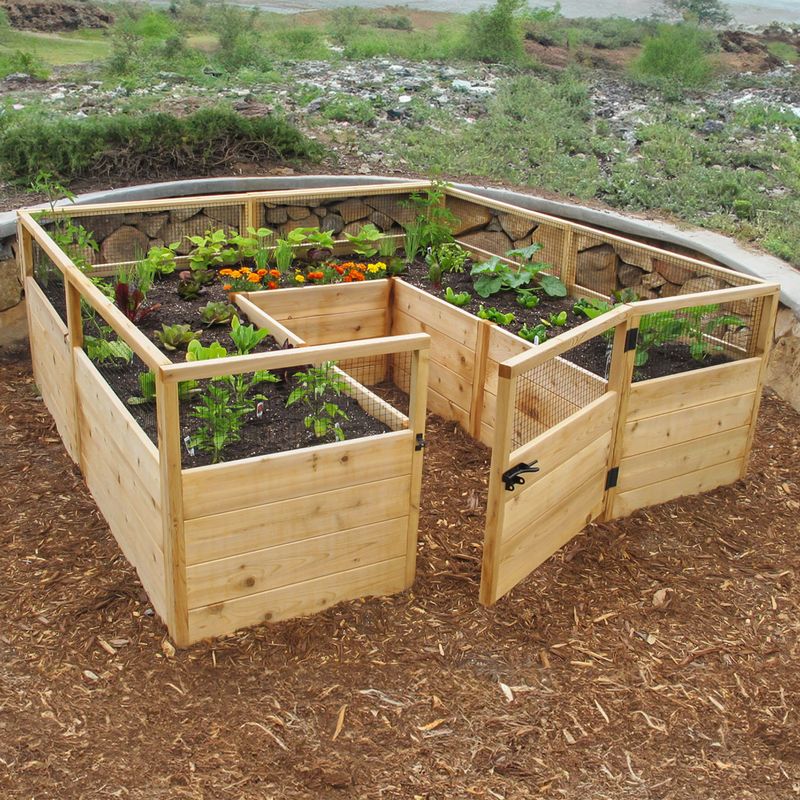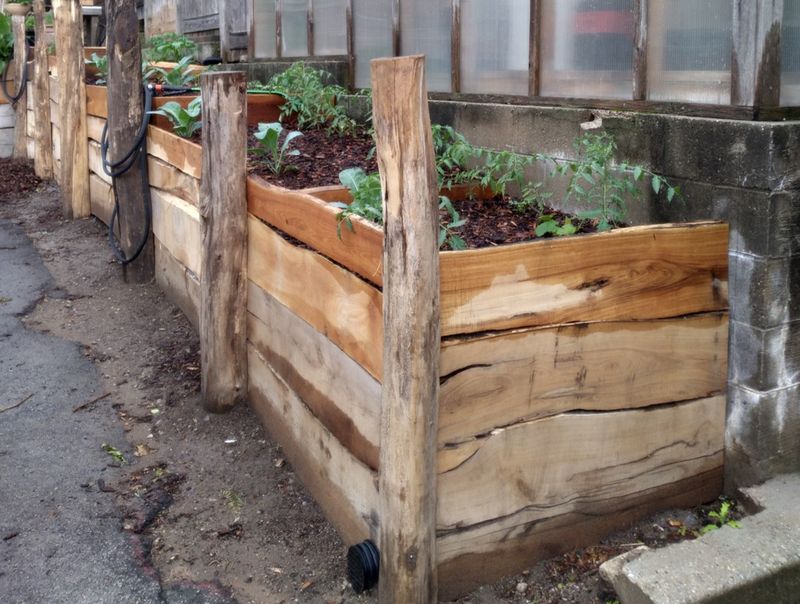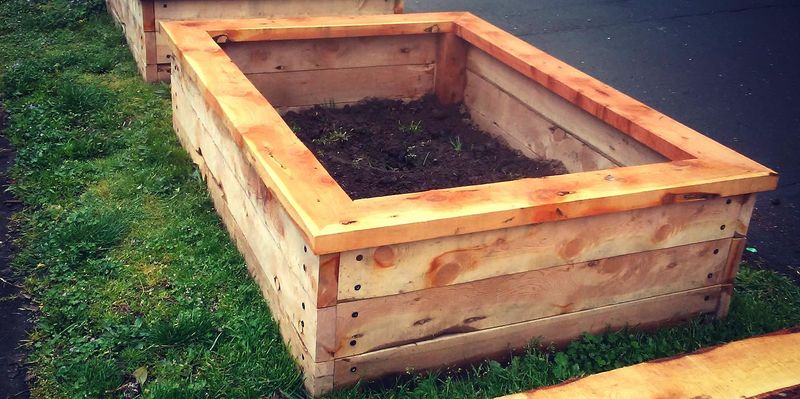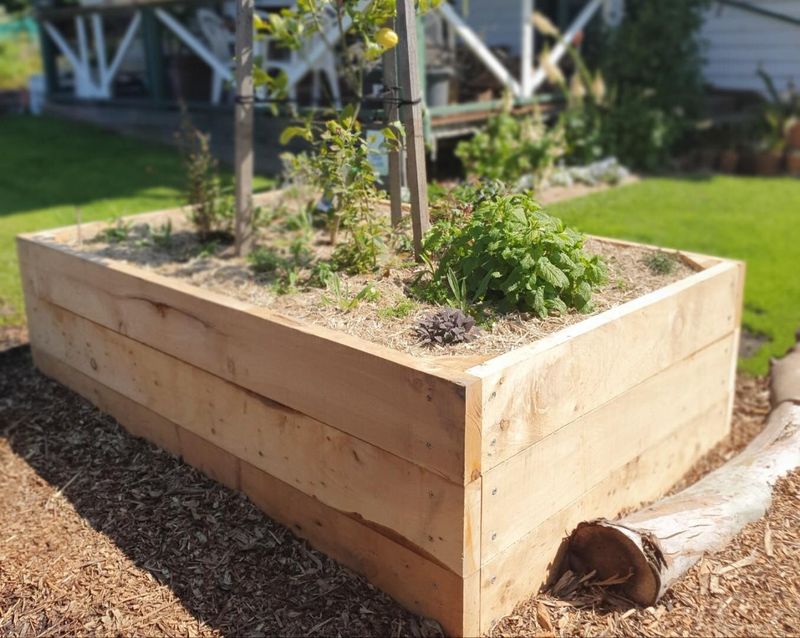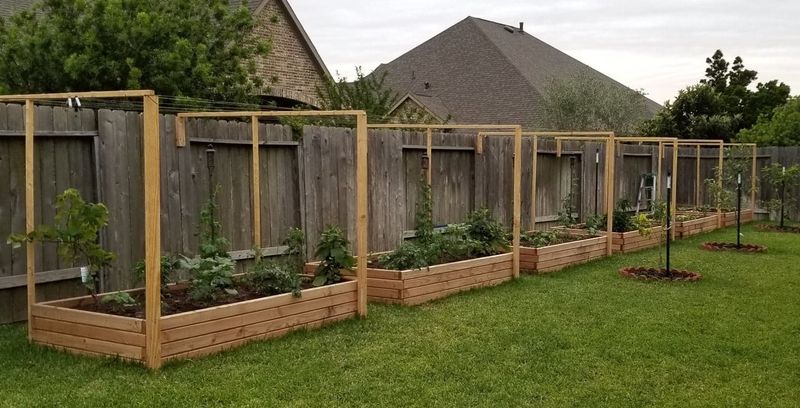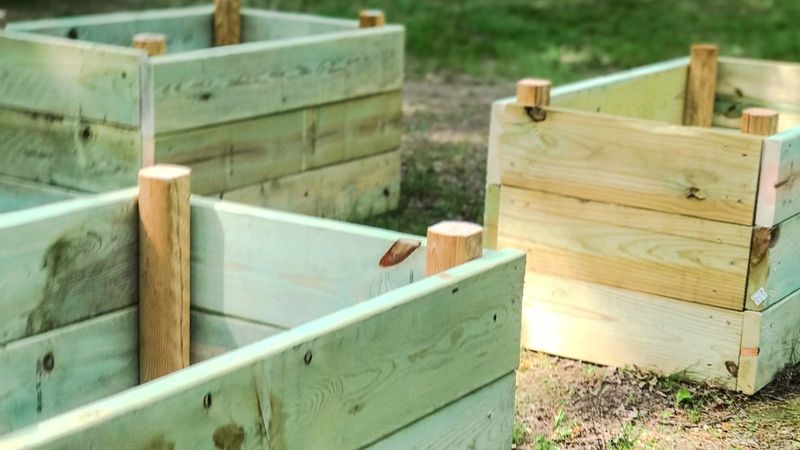Choosing the right wood for your raised garden beds is crucial for sustainability, aesthetics, and longevity.
With so many options available, it’s important to select a wood that not only fits your budget but also withstands the elements and enhances your garden’s beauty. Here, we explore the top 7 wood choices that promise durability and style for years to come.
1. Redwood
Grace your garden with redwood, a beautiful and durable option that resists decay while adding a premium touch. Prized for its rich, reddish hue, redwood brings both style and substance to your gardening space.
Though more costly, the investment pays off as this wood withstands weather and time with little effort. Redwood’s natural oils fend off insects, ensuring your plants thrive without chemical interference.
Its elegant presence transforms any garden into an oasis of sophistication. Whether enhancing a floral paradise or a vegetable haven, redwood offers longevity and charm, making it a gardener’s trusted ally.
2. Cedar
Cedar, naturally imbued with rot-resistant properties and essential oils that repel insects, is a top-tier choice for garden beds. Its rich aroma and warm hues make it an aesthetic delight.
Imagine a garden where cedar’s resilient nature keeps pests at bay for over a decade. With minimal maintenance, cedar can remain a steadfast companion in your gardening journey.
Its fine grain and sturdy constitution make cedar not just a choice, but a wise investment. Though initially more expensive, its longevity and low upkeep ultimately make cedar a budget-friendly option. Whether rain or shine, cedar stands resilient, enhancing garden beauty.
3. Black Locust
Black locust, the unsung hero of hardwoods, offers unparalleled toughness and rot resistance. Picture a rugged wood that can battle the elements and emerge victorious.
Its naturally coarse texture and light yellow-brown hue create a rustic yet resilient garden landscape. While sourcing might be a challenge, the payoff is a near-indestructible garden bed that requires little maintenance.
This wood’s steadfast nature makes it a perfect choice for those seeking reliability and performance. For gardeners who value sustainability and strength, black locust stands tall as a symbol of endurance and ecological mindfulness.
4. Juniper
Discover the charm of juniper, a wood dense in character and resistance to moisture. Its rich, earthy tones and distinctive knots bring visual interest and durability to any garden.
As a sustainable choice, juniper mirrors cedar’s longevity with proper care. Imagine your raised beds standing strong amidst seasonal changes, offering a nurturing refuge for your plants.
Juniper’s inherent resilience against moisture and pests makes it an eco-friendly ally. Whether you’re cultivating herbs or flowers, juniper’s robust nature will uphold your garden’s beauty and health through time.
5. Cypress
Cypress, a harmonious blend of cost and durability, offers decay resistance and adaptability across climates. Its warm, golden hue adds an inviting glow to any garden, capturing sunlight in a delightful dance.
This wood is a practical choice for gardeners seeking a balance between expense and resilience. The cypress’s adaptability promotes a thriving garden environment regardless of weather fluctuations.
Embrace the elegance and functionality of cypress, a wood that promises not only to enhance your garden’s visual appeal but also to provide a sturdy foundation for flourishing plant life.
6. Douglas Fir (with Treatment)
Douglas fir, when treated, offers an affordable and readily available option for gardeners. Its light color and smooth texture make it a versatile choice that complements any garden style.
With proper sealing or lining, Douglas fir can withstand several years of use, making it a budget-friendly alternative without sacrificing durability. Imagine a garden where affordability meets functionality, allowing more room for creativity.
Its presence in gardens is a testament to practicality, providing a reliable structure for your plants to thrive. Choose Douglas fir for a blend of economy and effectiveness.
7. Pressure-Treated Pine (Modern)
Today’s pressure-treated pine offers a safe and durable option for gardening enthusiasts. With improved treatment processes, this wood is resilient against rot and insect damage, making it a practical choice for long-lasting garden beds.
The subtle green tint of pressure-treated pine adds a unique aesthetic to your garden, blending seamlessly with nature’s palette. Envision a garden where modern science meets natural beauty, providing a sanctuary for your plants.
Pressure-treated pine’s enhanced durability ensures that your investment pays off in years of robust performance and minimal maintenance, supporting a thriving garden space.
